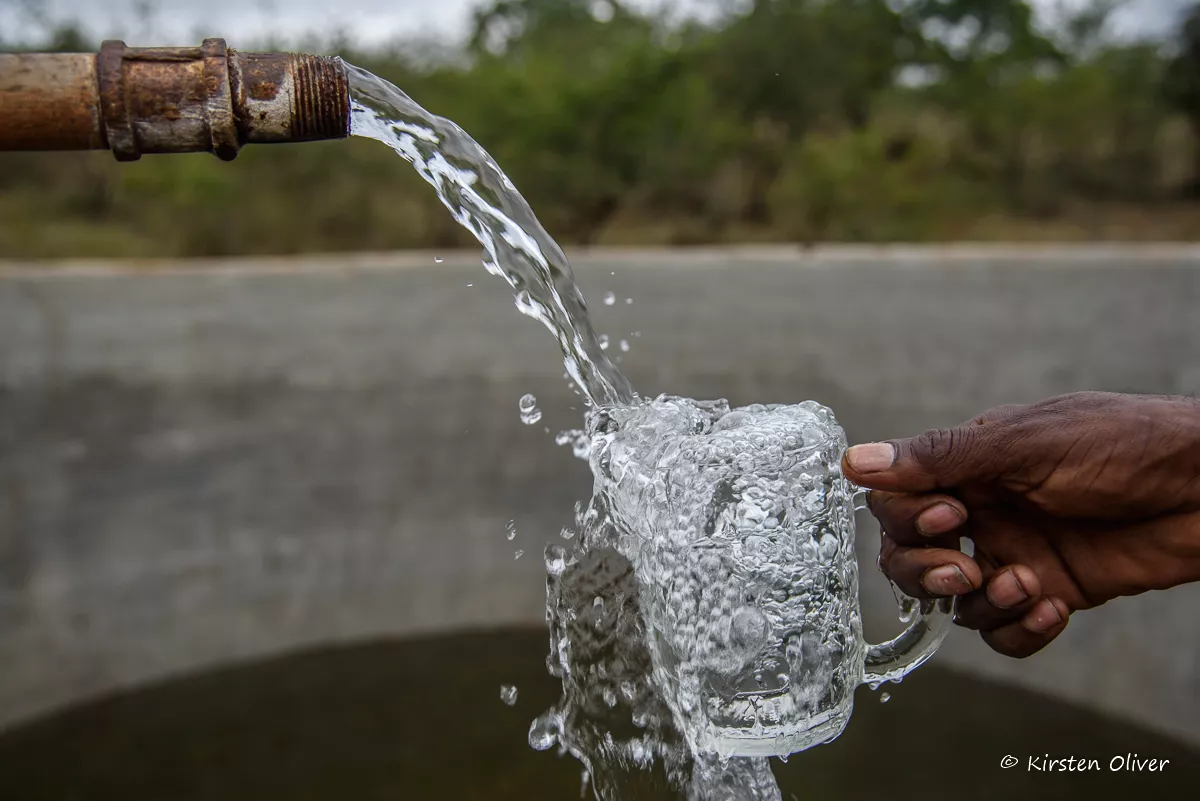A mother-of-two from Indiana died after consuming 64 ounces of water in only 20 minutes.
Ashley Summers, 35, died from water toxicity shortly after enjoying a peaceful day at Lake Freeman over the long Fourth of July weekend.
On the last day of her vacation, she had felt lightheaded and had a headache, both of which were indicators of dehydration, yet no amount of water could quench her thirst. She drank the equivalent of four 16oz (500ml) bottles.
Ms. Summers fainted in her garage when she returned home, having suffered from significant brain swelling. She never recovered consciousness.
Doctors diagnosed her with water poisoning, also known as hyponatremia, which occurs when the body has too much water but not enough sodium.
Ms. Summers’ brother, Devon Miller, was taken aback when he learned of his sister’s condition. ‘It was a tremendous shock to us all,’ he said. I was thinking, ‘Is this a thing?’
‘She simply felt like she couldn’t get enough water,’ Mr Miller continued. It was probably a 20-minute boat ride from the sandbar to the dock… she drank four bottles of water in that 20-minute period.’
On a weekend vacation boat trip, the Summers family went to Lake Freeman, a popular summer destination about 80 miles north of Indianapolis. Ashley ‘enjoyed being on the water,’ according to her brother.
The family had been staying at the location from Saturday, July 1 until Tuesday, July 4.
Ms. Summers’ family reported that she was dehydrated and couldn’t drink enough water to appease her thirst on Tuesday morning.
Mr. Miller received a worrying call regarding Ashley from his other sister on Tuesday evening. She passed out in her garage and was rushed to Indiana University Health Arnett Hospital.
Ms. Summers never regained consciousness, and physicians diagnosed her with hyponatremia or water poisoning.
The syndrome arises when a person consumes an excessive amount of water in a short time, which overwhelms the body’s complex organ systems, particularly the kidneys, in regulating fluid balance.
The goal is to achieve a balance between water and electrolytes like sodium, potassium, and chloride in order to ensure optimal cell activity.
Sodium is very important for its ability to maintain cell communication via electrical impulses.
Sodium also aids in nutrition absorption in the digestive tract and the kidneys, regulating the quantity of water and electrolytes reabsorbed into the bloodstream or expelled through urine.





![Late Chinyere Gladys Mbakwe Set For Burial Feb. 20 In Umuahia [SEE POSTER] Mrs. Chinyere Gladys Maduabuchi Mbakwe Set For Burial Feb. 20 In Umuahia [SEE POSTER]](https://abntv.com.ng/wp-content/uploads/2026/02/FB_IMG_1771516412563-300x194.jpg)




![Late Chinyere Gladys Mbakwe Set For Burial Feb. 20 In Umuahia [SEE POSTER] Mrs. Chinyere Gladys Maduabuchi Mbakwe Set For Burial Feb. 20 In Umuahia [SEE POSTER]](https://abntv.com.ng/wp-content/uploads/2026/02/FB_IMG_1771516412563-100x75.jpg)